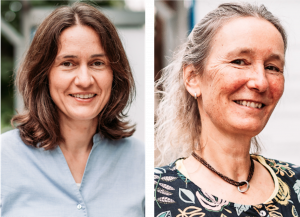
German research institute provides foundation for global antibiotics research
The Leibniz Institute DSMZ supplies researchers with resistant bacteria of the WHO-list
BRAUNSCHWEIG, LOWER SAXONY, GERMANY, May 17, 2024 /EINPresswire.com/ -- The Leibniz Institute DSMZ-German Collection of Microorganisms and Cell Cultures GmbH in Braunschweig, Germany is home to numerous microorganisms relevant for environmental research and biotechnology. Among those are antibiotic-resistant bacteria, some being part of groups that are listed in the WHO priority pathogens list for R&D of new antibiotics [1]. Antibiotic-resistant bacteria pose a serious threat to human health and force the global research to focus on finding new bioactive compounds to combat their spread. The Leibniz Institute DSMZ provides 17 such bacterial strains to the global scientific community, with several clinical isolates being exclusively available through the DSMZ collection.
Resistances complicate antibiotic treatment
In recent years, infections caused by antibiotic-resistant pathogenic bacteria and fungi have continued to increase. Consequently, the treatment of such infections is becoming more and more difficult. In 2019, an estimated number of 1.27 million people died from infections with resistant pathogens. “Because of the wrong and excessive use of antibiotics, microorganisms develop resistance more often. Simultaneously, the approval of new, effective antibiotics has been on a steady decline for many years. This is especially precarious for Gram-negative bacteria, such as E. coli, which are often resistant to several antibiotics.”, concludes biochemist PD Dr. Sabine Gronow on the current situation.
Clinical isolates for antibiotic research
Currently, there are 17 strains of bacteria deposited at the Leibniz Institute DSMZ, which are representatives of the of the WHO priority list. These bacteria and all connected data, e. g. their resistance profiles, are made available to the scientific community by DSMZ. “These bacterial strains are patient isolates and thus precisely the pathogens for which medical treatment is needed in hospitals”, informs microbiologist Dr. Birte Abt. “To continue documenting the current resistance developments, we are fundamentally reliant on new deposits from the medical community”, continues Dr. Abt. In addition to the provision and characterisation of the bacteria themselves, a DSMZ research group is using these strains in Genome Mining studies as target organisms with the aim to identify new antibiotics against them. An overview of all bacteria available through DSMZ is provided online.
Press contact:
PhDr. Sven-David Müller, Head of Public Relations, Leibniz Institute DSMZ-German Collection of Microorganisms and Cell Cultures GmbH
Phone: ++49 (0)531/2616-300
Mail: press@dsmz.de
About the Leibniz Institute DSMZ
The Leibniz Institute DSMZ-German Collection of Microorganisms and Cell Cultures is the world's most diverse collection of biological resources (bacteria, archaea, protists, yeasts, fungi, bacteriophages, plant viruses, genomic bacterial DNA as well as human and animal cell lines). Microorganisms and cell cultures are collected, investigated and archived at the DSMZ. As an institution of the Leibniz Association, the DSMZ with its extensive scientific services and biological resources has been a global partner for research, science and industry since 1969. The DSMZ was the first registered collection in Europe (Regulation (EU) No. 511/2014) and is certified according to the quality standard ISO 9001:2015. As a patent depository, it offers the only possibility in Germany to deposit biological material in accordance with the requirements of the Budapest Treaty. In addition to scientific services, research is the second pillar of the DSMZ. The institute, located on the Science Campus Braunschweig-Süd, accommodates more than 87,500 bioresources and has almost 230 employees. www.dsmz.de
The Leibniz Association
The Leibniz Association connects 96 independent research institutions that range in focus from the natural, engineering and environmental sciences via economics, spatial and social sciences to the humanities. Leibniz Institutes address issues of social, economic and ecological relevance. They conduct basic and applied research, including in the interdisciplinary Leibniz Research Alliances, maintain scientific infrastructure, and provide research-based services. The Leibniz Association identifies focus areas for knowledge transfer, particularly with the Leibniz research museums. It advises and informs policymakers, science, industry and the general public. Leibniz institutions collaborate intensively with universities – including in the form of Leibniz ScienceCampi – as well as with industry and other partners at home and abroad. They are subject to a transparent, independent evaluation procedure. Because of their importance for the country as a whole, the Leibniz Association Institutes are funded jointly by Germany’s central and regional governments. The Leibniz Institutes employ around 20,500 people, including 11,500 researchers. The financial volume amounts to 2 billion euros. www.leibniz-gemeinschaft.de
PhDr. Sven David Mueller, M.Sc.
Leibniz-Institut DSMZ
email us here
Visit us on social media:
Facebook
Twitter
LinkedIn
Instagram
YouTube
Other
EIN Presswire does not exercise editorial control over third-party content provided, uploaded, published, or distributed by users of EIN Presswire. We are a distributor, not a publisher, of 3rd party content. Such content may contain the views, opinions, statements, offers, and other material of the respective users, suppliers, participants, or authors.


